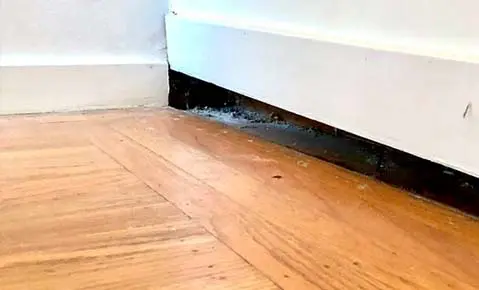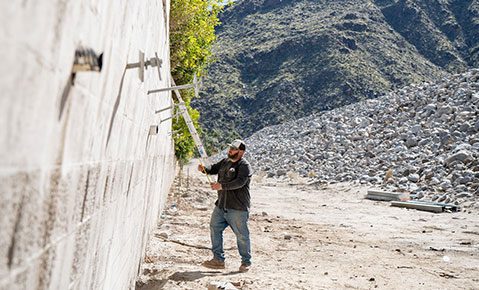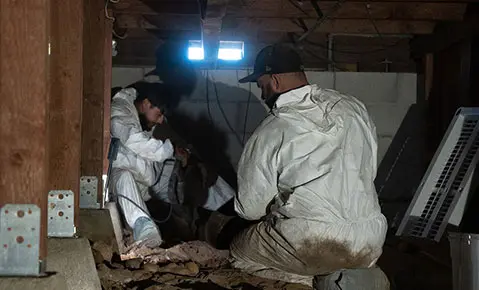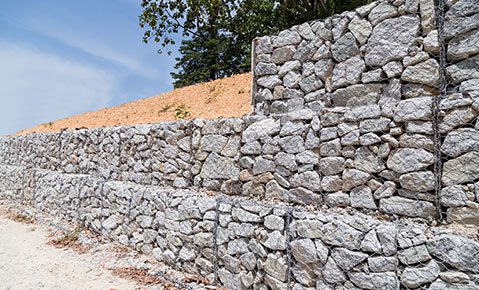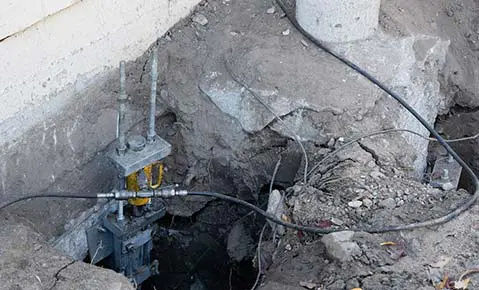Wondering if you should buy a house with a foundation repair? If so, you’ve landed on the right page because that’s what we’ll discuss in this article. We’ll review foundation problems, what causes them, whether you should buy a house with a foundation repair, and more.
What Do We Mean When We Say a House Has a Foundation Problem?
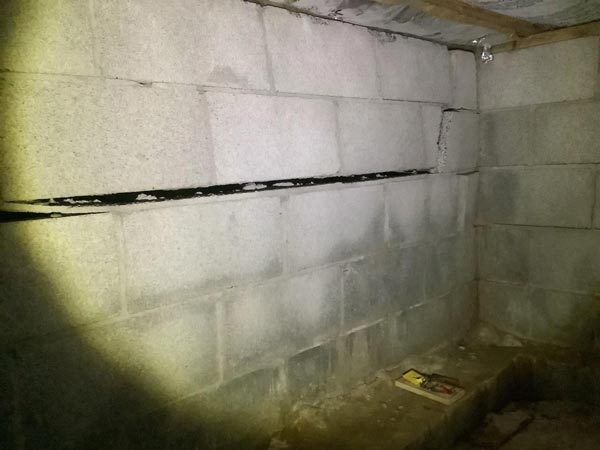
When we say a house has a foundation problem, we mean the structure that supports the entire building has a problem. Since the foundation holds up the house, any problems with it can have serious consequences. Therefore, it’s essential to address foundation issues early before they become big problems that will be even more costly to repair.
Common Signs A House Has a Foundation Problem
Signs a house might have a foundation problem include the following:
- Cracks in the walls, floors, and ceilings
- Uneven floors
- Doors and windows that are difficult to open and close
- Chimneys and porches that are pulling away from the house
- Stair step cracks in brick or masonry
- Water damage or moisture buildup in the basement (in regions with basements)
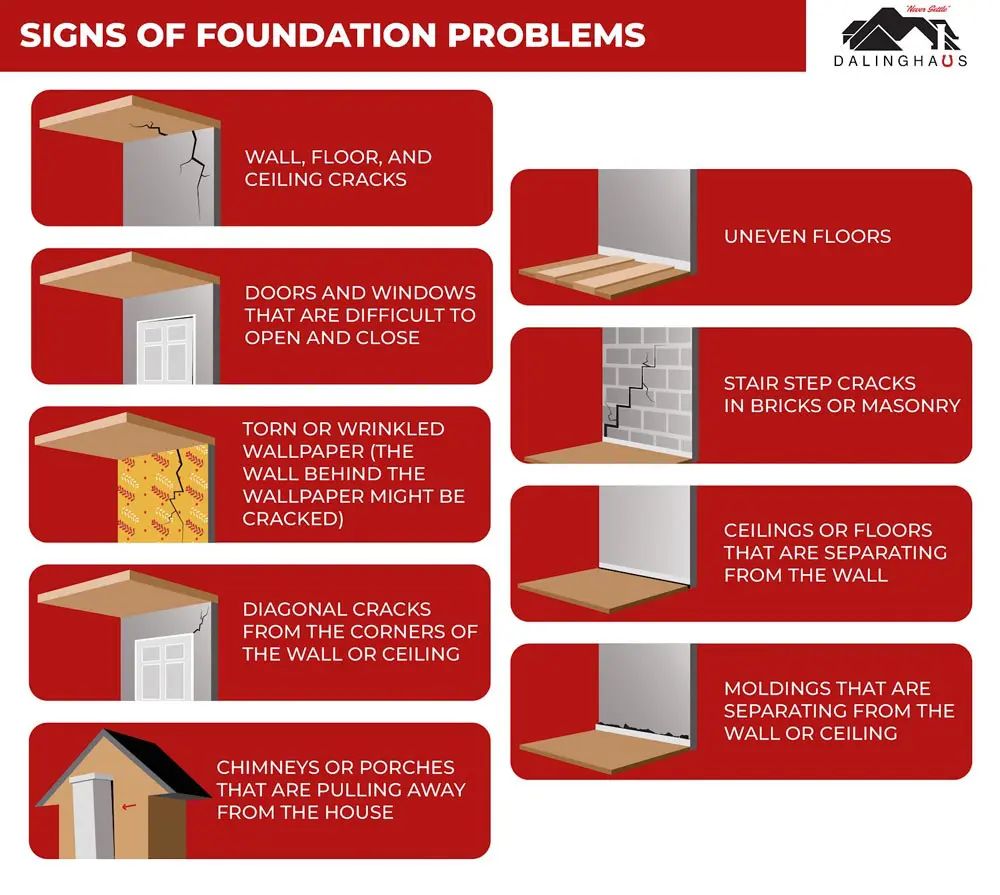
If you see any of the above – or anything else that strikes you as suspicious – contact a foundation repair contractor immediately and ask for a foundation evaluation. Foundation issues worsen over time; if you wait, you’ll pay more for the repair.
What Causes Foundation Problems?
Differential settlement causes most foundation problems
The leading cause of foundation problems is a phenomenon called “differential settlement,” or when a foundation settles into the ground unevenly.
Differential settlement places enormous stress on the building and can lead to several structural damage if it isn’t promptly corrected.
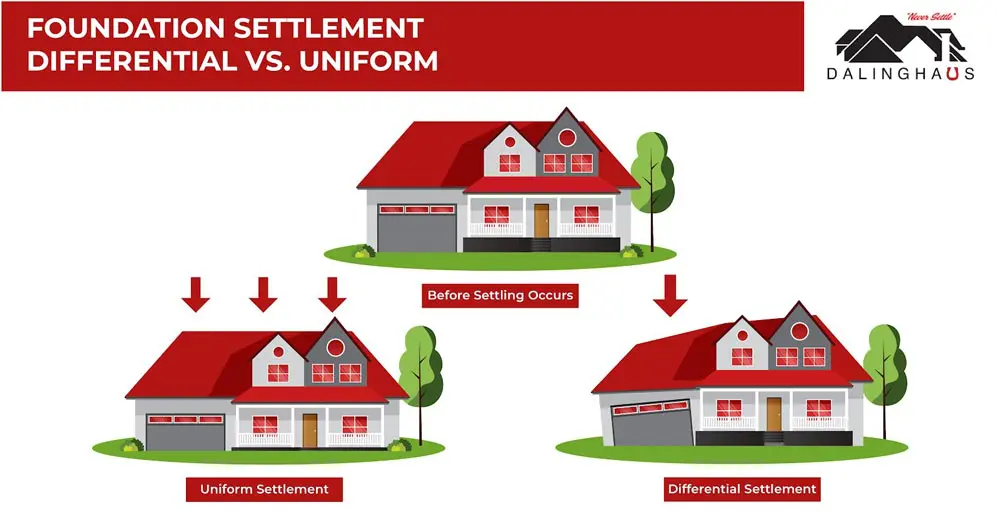
Causes of differential settlement
Various things, including the following, cause differential foundation settlement:
Expansive soil
Expansive soil contains a high percentage of clay. Because of this, it significantly increases in volume when exposed to moisture and subsequently shrinks when the soil dries up. This causes movement in the ground under the foundation. Initially, the weight of the building compresses the soil uniformly, but as the soil soaks up moisture, it expands, causing uplift. As the soil dries and shrinks, the uplift subsides. This cycle of moisture-induced expansion and drying-induced shrinkage can result in differential settlement.
Erosion-prone soil
Erosion-prone soil is characterized by its instability and vulnerability to erosion caused by wind and water. When the soil washes away under a foundation, voids can develop over time and cause the foundation to settle unevenly into the ground leading to differential settlement.
Excavation next to the foundation
If you start digging too close to a foundation, you’re taking away some of the solid ground the foundation sits on. This can cause the ground under the foundation to shift and settle unevenly. Imagine digging a hole right next to a lawn chair. There’s a possibility the ground under the lawn chair will be destabilized, and the chair will fall into the hole.
Inadequate soil preparation
Before construction, it’s crucial to prepare the soil to support the building’s weight. If this isn’t done correctly, the structure can settle into the ground unevenly, leading to differential settlement.
Weather changes
Imagine building a house on expansive soil during the dry season. When the rainy season rolls around again, the soil will soak up moisture and expand, causing movement in the ground under the foundation. This could cause differential settlement.
Natural disasters
When an earthquake occurs, the ground experiences intense shaking that causes soil particles to rearrange, compact, or liquefy depending on their composition. As ground movement occurs, some areas of the structure will sink more than others, creating differential settlement.
Hydrostatic pressure also can cause foundation problems
In regions where basement foundations are common, hydrostatic pressure is a common cause of foundation problems. This happens when excess moisture in the ground around the foundation can’t drain off. Hydrostatic pressure pushes against foundation walls; if it isn’t relieved, it will eventually cause the wall to bow inward and even crack.
How Are Foundation Problems Repaired?
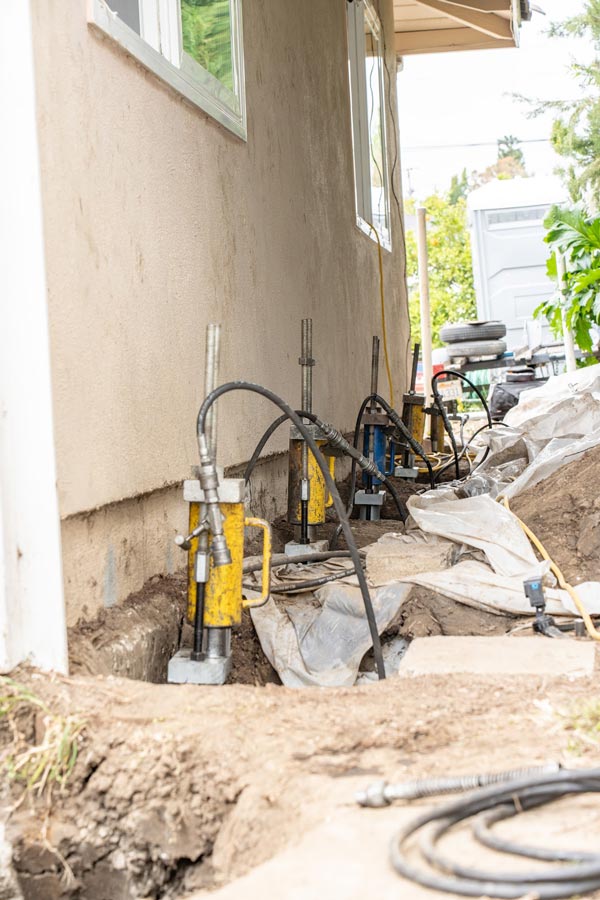
Foundation problems are repaired in various ways, depending on what caused them. These repair solutions may include the following:
- Underpinning – Underpinning is used to correct differential settlement. It’s done using push piers, helical piers, drilled concrete piers, or slab piers. The piers extend the foundation down to soil that can support it.
- Foundation wall stabilization – If you live in an area where basement foundations are common and have a bowed and/or cracked wall due to hydrostatic pressure, the repair solution might be carbon fiber straps, helical wall anchors, or wall plate anchors.
For more information, see Understanding Foundation Raising and Differential Settlement.
Is the Seller Required to Tell Me the House Has a Foundation Problem?
Most states require sellers to provide a disclosure statement outlining any known issues with the home. Failure to disclose a known issue could lead to legal repercussions, particularly if the issue causes problems for the new owner after completing the sale.
One thing that we see on almost every disclosure report for a house with a foundation issue is it is listed as having a “cracked slab”. They are typically pretty vague with identifying what is actually wrong with the house.
Consult with local real estate experts and legal professionals to fully understand the requirements and expectations of buyers and sellers in your area.
As foundation repair professionals, we strongly advise you not to sign anything until you’ve had the property inspected, either by a professional foundation repair contractor or a structural engineer. While most states require the seller to disclose a foundation issue, that doesn’t mean they will.
Should I Buy a House With a Foundation Repair?
Just because a house has had a foundation repair doesn’t necessarily mean it’s a bad investment. Here are some things to consider:
Why was the repair done?
It’s essential to determine the cause of the foundation issue and the extent of the repairs made. Was it a one-time event due to external influences, such as a natural disaster, or an ongoing issue resulting from poor construction or maintenance? Did a reputable and qualified contractor make the necessary repairs?
What’s the current state of the foundation?
Next, it’s vital to assess the current condition of the foundation. While the repair may have successfully resolved the issue, there could be lingering effects or ongoing maintenance needs.
Who repaired the foundation, and is the warranty transferable to the new owner?
Is the company that repaired the foundation reputable and still in business? Is there a warranty on the repair, and is it transferable to the new owner? Remember that a warranty is only as good as the company behind it.
How Much Does Foundation Repair Cost?
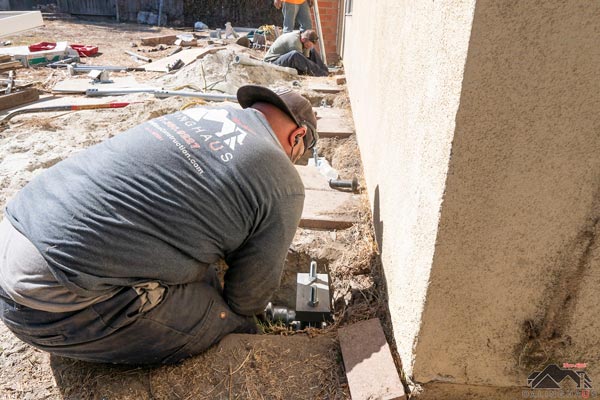
The cost of foundation repair depends on various factors, including the size and foundation type, the type of damage and the severity, the underlying soil conditions, and the location of the building. Our average foundation repair cost for 2022 was $28,000. That included projects from $2500 all the way up to $150,000.
Some foundation problems are relatively easy to fix, such as filling and sealing minor cracks. However, more severe damage caused by differential settlement may require underpinning, which involves excavating the foundation and stabilizing it with piers. Although underpinning is a relatively quick, minimally-invasive repair, it isn’t cheap. This is why it’s essential to address foundation issues as quickly as possible.
If you’re wondering if you should buy a house with a foundation repair, contact us today to schedule a foundation evaluation. If we find a problem, we’ll give you a repair estimate that you can figure into your offer. We serve Southern California, Arizona, and Nevada.


